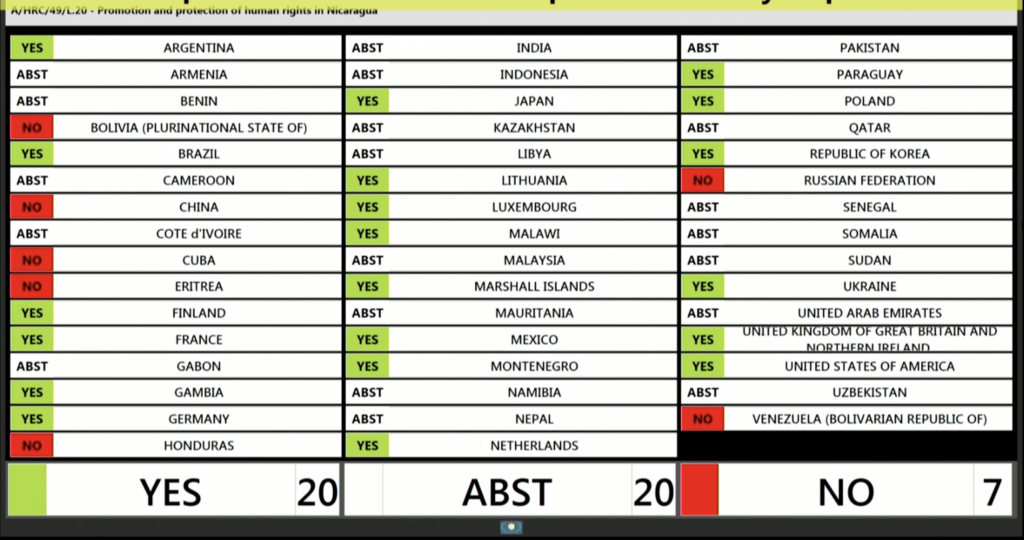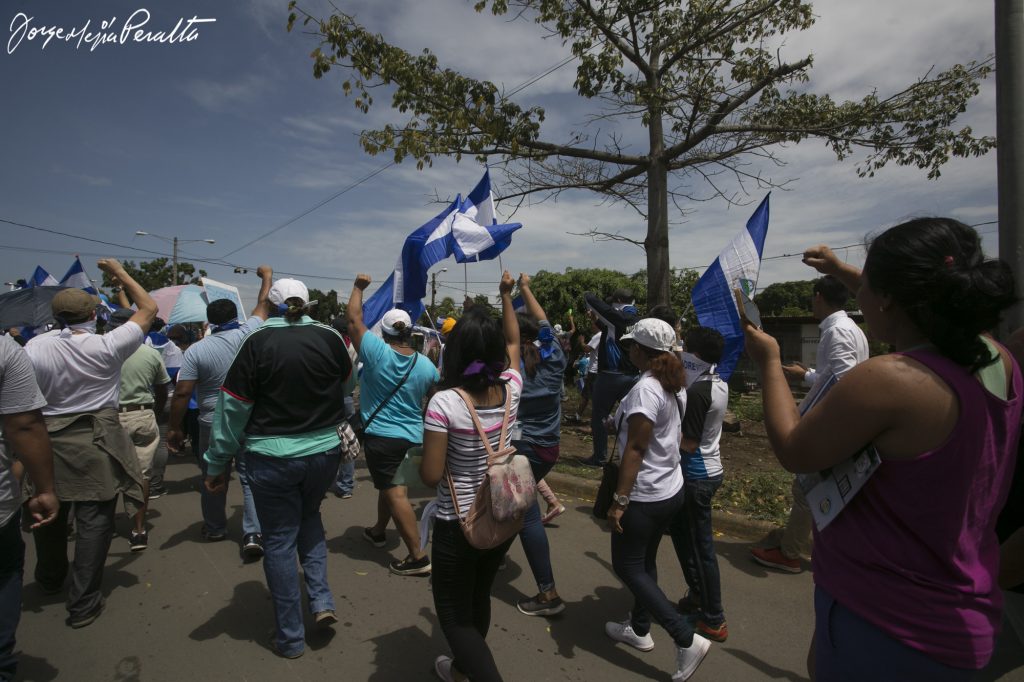Update: We did it!!! The UN Human Rights Council (HRC) adopted on 31 March 2022 during its 49th session, by 20 votes in favour, a resolution that establishes for one year a “Group of Experts on Human Rights” with a mandate to investigate and seek accountability for serious human rights violations in Nicaragua. The mechanism the Council adopted is one of the strongest in existence: it will make it possible to identify those responsible for the violations committed in Nicaragua and to preserve evidence for future justice processes. It sends a clear message to all States that non-cooperation with the universal system, and disregard for serious human rights violations, will not be tolerated.
Read more about this campaign win

We believe in an open, equal, and democratic Nicaragua. A Nicaragua in which the human rights of all people are guaranteed without distinction, and where those who raise their voices against abuses are protected. A country in which truth and justice are guaranteed without exception, especially for those groups who have been historically discriminated against.
This is not currently possible in Nicaragua. Since April 2018, the government has criminalised, arbitrarily detained, tortured, disappeared, and even killed, those who promote human rights and who question the government’s way of governing, including indigenous and Afro-descendant peoples defending their ancestral territory. It has also adopted a series of laws restricting freedoms of expression, peaceful assembly and association, further closing space for civil society to push for positive change.
Recognising this crisis, the UN, through its Human Rights Council, has taken action by adopting resolution 46/2, calling on the Government of Nicaragua to adopt a series of urgent measures to resolve this multi-pronged human rights crisis. Yet, according to our research, the Government of Nicaragua has not implemented any of the recommendations of resolution 46/2. On the contrary, it has taken an increasing number of measures contrary to them.
Additionally, the Nicaraguan Government has showed no intention to resume meaningful cooperation with the international community, since it expelled the UN and Inter-American Commission on Human Rights (IACHR)’s human rights presence from the country in December 2018. During dedicated Human Rights Council meetings, it avoided addressing any substantial concern, instead rejecting all criticism as ‘interventionist and supremacist.’ It also refused to respond to questions posed by the Committee on Economic, Social, and Cultural Rights (CESCR) during its review last September.
It is time for the UN Human Rights Council to respond more assertively by establishing an international mechanism that ensures justice and accountability for Nicaragua, at its upcoming March 2022 session.

